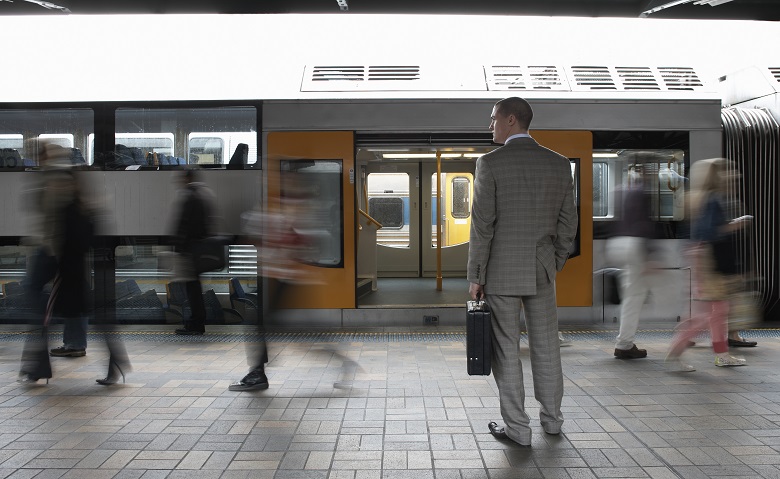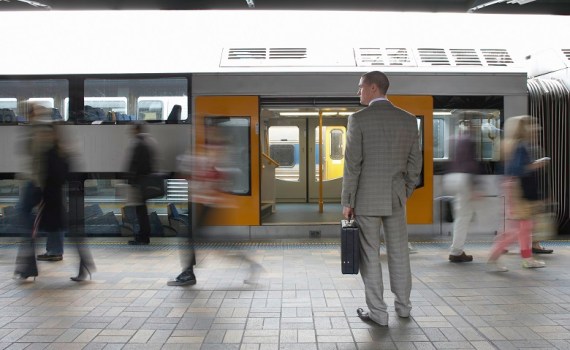
An audit of the NSW transport cluster shows that Sydney and intercity trains are failing to meet punctuality targets and warns the network will struggle to ensure on-time services in the future if the higher-than expected increase in demand continues.
Patronage increased by 37.8 million (4.9 per cent) across all modes of transport in 2018-19, with approximately 424 million passenger journeys made using rail services, compared to 406 million in 2017-18.

In her report released last week Auditor-General Margaret Crawford also calls for independent oversight to ensure punctuality data, which is currently self-reported, is accurate.
A rail service is considered to be punctual if it stops at all stations specified on timetable and arrives within a specified time – five minutes for suburban, six minutes for intercity and ten for regional.
Suburban and intercity services are required to achieve 92 per cent punctuality and regional services have a target of 78 per cent.
The Transport 2019 report found Sydney Trains punctuality fell after timetable changes in November 2017 which added more than 1,500 extra services, and it recorded 91.3 per cent of its punctuality target across the year, compared to 91.6 per cent the previous year.
Punctuality recorded by NSW Trains Intercity Services fell from 91.2 per cent in 2017-18 to 90.5 per cent in the current period. Regional service punctuality was 79.1 per cent.
The audit says train punctuality is currently self-reported by the two entities.
“Parliament and the New South Wales public will further benefit from independent assurance over the accuracy of self-reported data by Sydney Trains and NSW Trains,” it says.
The report also warns that “if recent higher-than-forecasted patronage growth continues, the network may struggle to maintain punctuality in the future periods”.
For buses, which are provided by private operators and managed by TfNSW, punctuality targets were not met in 11 of the 15 bus regions at least once a month.
There no target measures for crowing on buses but the audit shows that almost 10,000 passengers were left behind because their bus was too full in 2018-19, 1,000 more than in the previous year.
Two operators were fined for not meeting KPIs on reliability.
The figures are based on self-reporting by bus operators as part of the their monthly reporting, as well as complaints, video footage and Opal data.
Negative-revenue Opal cards a money suck
Ms Craword also said Transport for NSW needs to do something to stem the loss of revenue from Opal cards, which now stands at almost $10.5 million.
The report says negative balance Opal cards resulted in $2.9 million in revenue in revenue not being collected in 2018-19, or $10.4 million since the introduction of the card.
The government lost $3.8 million in 2071-18.
Once a card goes into a negative balance the money can’t be recouped by the government until the card is topped up. If the card is simply thrown out, the money is irrecoverable.
The audit says TfNSW has attempted to prevent the loss by stopping customers with high negative balances leaving Sydney Airport stations, and by increasing the minimum top up values for new cards at airport stations.
But it says more needs to be done.
“TfNSW should implement further measures to prevent the loss of re venue from passengers tapping off with negative balance Opal cards,” it says.
Managment of infrastructure projects criticised
Meanwhile the audit also took Tranport for NSW to task over its handling of major infrastructure projects including the South East Light Rail, WestConnex and NorthConnex.
It found lack of transparency, cost overruns and time delays were common factors in all three.
In the case of the troubled $2.9 billion light rail project, the audit details a string of cost over-runs, mispricings and omissions.
They included an additional $576 million settlement paid to the consortium responsible for delivering the project and a $37.5 million payout to businesses affected by delays in construction.
“Good project management involves implementation of processes to monitor the costs of projects. Transport should have the detailed costings of the project available to update budgets and costs regularly,” it said.
“Given the level of public scrutiny on this project, Transport should improve transparency of costs and budgets through more regular public announcements.”
Comment below to have your say on this story.
If you have a news story or tip-off, get in touch at editorial@governmentnews.com.au.
Sign up to the Government News newsletter



What can we really say, apart from saying our politicians haven’t got a clue. Forward Planning not part of their visions and thinking. No just in time for the right solutions now, either.